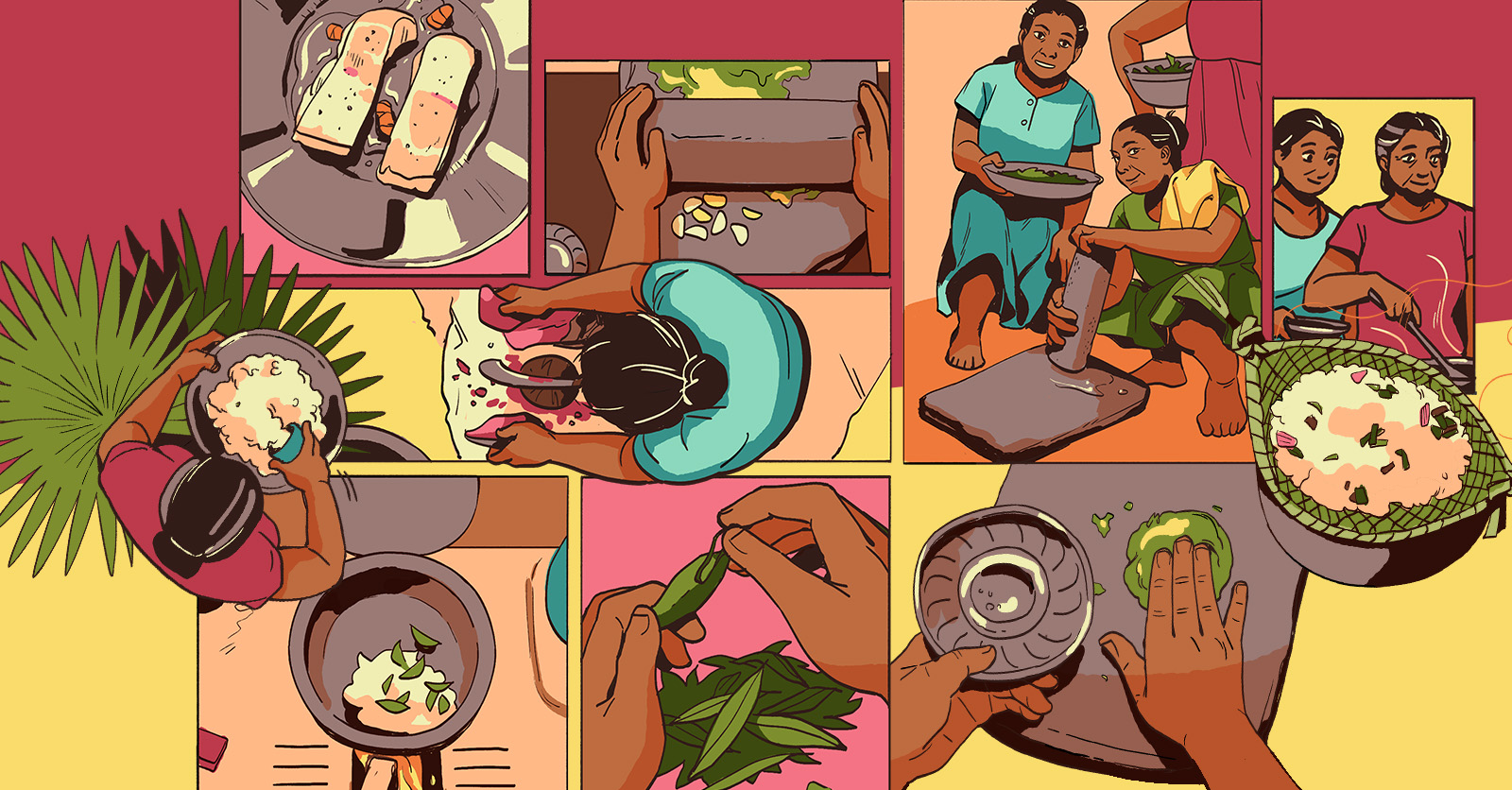Feng shui
Why do we still believe in it?
by Gwyneth ChengFeng shui has been classified as a pseudoscience. Many young people think it’s all hocus pocus. Yet the practice still greatly influences our lives today. What exactly is feng shui, and why do Chinese societies place such importance on it?
In the colossal mountains of Hong Kong, there lives a dragon.
Each day, the dragon takes off from its resting place and swoops over the city towards the vast oceans to bathe.
The people know its routine. Very kindly, they’ve given it the space to fly, having created holes in their skyscrapers they call “dragon gates”. In thanks for the smooth journey, the dragon blesses the people with good energy, granting them luck, health, and wealth.

The Bel-Air Residence in Hong Kong. Source: Wikimedia Commons CC BY-SA 3.0
For centuries, the idea of generous dragons and their blessings has flowed in Chinese societies. But this is only one part of a much larger, far more complex concept—a concept so important, it affects all aspects of regular life. The architectural decisions of skyscrapers are just a small example of its influence.
You might have heard of this concept before—its called feng shui (风水).
The practice, whose name directly translates to “wind water”, is derived from ancient Chinese wisdom which claims that aligning built structures with their surrounding natural environments—creating a harmonious relationship between both—will attract luck and fortune.
Modern day feng shui was commonly known as, and rather similar to, general divination theories and customs in the earliest known Chinese historical records. The term feng shui was only officially coined during the Song dynasty (960–1279). From then on, it has been seen as a distinct branch of study.
Although the complexities of feng shui might make it confusing to many, most of its practices follow three major theories: the theory of qi, the five elements theory, and the yin-yang theory.
After becoming an official profession during the Song dynasty, feng shui became a popular topic of debate. It saw its fair share of believers and sceptics among scholars and the common people. Oftentimes, it would be condemned in public but fervently practiced in private.
Either way, feng shui was important enough to a large enough proportion of society that it never faced the risk of being eradicated. But the discipline only became widely popular in later decades. Although many individuals contributed to this rise, two important figures pushed it to the forefront of Chinese societal norms.

The teachings of these two figures spawned two major schools of thought in feng shui: the School of Forms and the School of Orientations.
The School of Forms focuses on how the “forms and outlines” of the natural world influence one’s life through studying mountains, hills, ridges, slopes, rocks, streams, and vegetation. This school of thought teaches one to read the configuration of the landscape surrounding a man-made structure—such as considering the flows of wind, water, and qi to judge the forces at play at a certain site—for a given purpose.
The School of Orientations focuses on the study of cosmological order using mechanical, directional tools such as the compass. It also uses cosmological phenomena to understand how auspicious a site or date is.
Now that we know what its basic theories are, the next step is learning how to improve our lives with feng shui. This is where most people turn to feng shui masters—professionals who use certain tools (such as the bagua, the traditional calendar, and the Chinese almanac) to figure out what’s best.

Equipped with these tools, feng shui masters and their skills are applicable almost everywhere. The practice is applied to any event or activity of importance, such as rituals, festivals, architectural decisions, and burials.
In short, feng shui is intertwined with the blessings of everyday life. There’s no limit to what people can ask about.



For a practice that’s classified as a pseudoscience, feng shui naturally runs into a lot of debate over its believability.
Even though Chinese societies had their fair share of scepticism towards it, feng shui’s harshest critics were the Westerners who eventually encountered it.
When Roman Catholic missionaries first learned about feng shui in the 1500s, it was dubbed the “most ridiculous invention”. At one point, China was even accused of being backward. Famous writers and thinkers Karl Marx and Friedrich Engels even called the nation an “embalmed mummy at the end of the world”.
Fast forward to 2021, and feng shui is slowly falling out of popularity, especially among the younger generations—who have grown up with considerable influence from Western culture.
But the practice isn't going anywhere anytime soon. Feng shui is still important enough to considerably influence our lives, and younger generations almost instinctively follow it even today. Why?
Chinese cosmology, which plays a huge role in feng shui, believes that everything—whether human, material, natural, spiritual, or cosmic—is connected in a higher pattern of existence.
Feng shui is one way to read and influence one's future in this pattern of existence. But since we can't hope to truly understand existence, a part of us understands that it may not always work or produce direct, tangible outcomes.
Throughout history, Western colonial and media perspectives have often portrayed feng shui’s behaviours as incomprehensible and contradictory. Why would young adults, for instance, ridicule superstitious practices but also choose auspicious dates for their own weddings and other life events?
The answer, we think, is this—while people may not whole-heartedly believe in feng shui, why would we not stack the odds in our favour when something important is on the line? The comfort and control of having done one’s best to keep one’s hopes and dreams in harmony with the universe is still valuable—and rituals are a crucial part of that experience.
In other words, if you get your feng shui right, you might have a higher chance of a favourable outcome—and that's why people continue practicing it.
This also explains why, even in feng shui’s heyday, many people in Chinese societies believed that the rituals and customs would only work if we put in actual effort alongside them.
Thus the saying,
Ultimately, feng shui is a practice that people lightly rely on as something that is “good to have”. It offers the comfort of knowing that one has harmoniously aligned one’s dreams, hopes, and needs with forces beyond oneself—and that it’s acceptable if things do not go one’s way even after all that.
This has never been a backward idea—though it may seem so to those who don’t make the effort to understand it further.
Embracing feng shui might just be good for us. After all, it’ll do us all good to be a little less rigid in our attempts to make sense of our existence—for we never know and may only guess, to the best of our knowledge, what’s right and what’s wrong.









